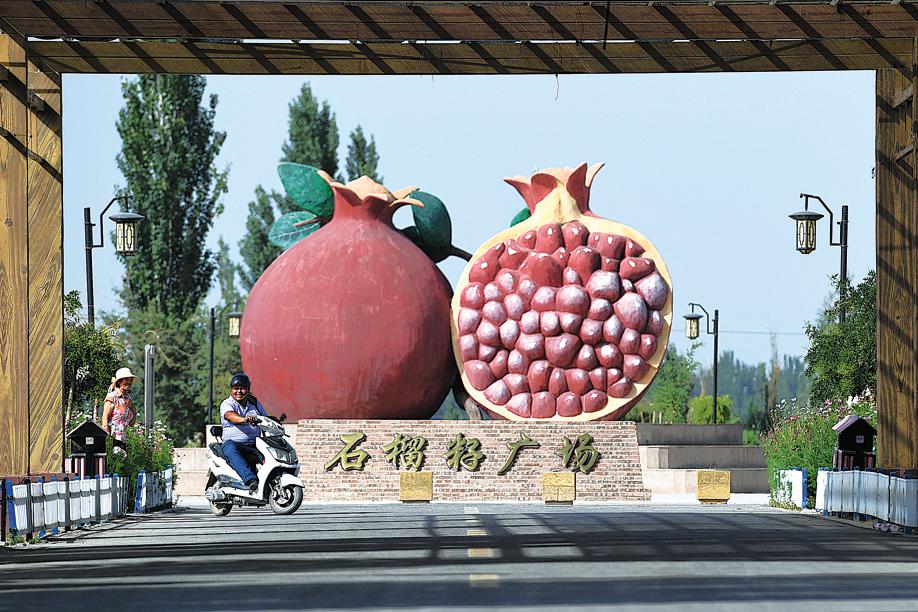

As Ahmat became a grown-up who chose to live on farming, the couple bought him tractors and other necessary tools. In 1995, he married a woman from Shaya county in Aksu. Sun and Wang gave him 5,000 yuan ($774) to hold the wedding and purchase new furniture.
"They treat me as their own child," says Ahmat.
Ahmat also shows filial love for Sun and Wang. It's part of his daily routine to take a 15-minute walk from his own house to Sun and Wang's to see if he could help with household chores. In 2008, Sun was injured in a car accident and in 2018, he suffered a severe stroke. Ahmat and his wife took care of Sun in hospital.
"I feel grateful that I have Ahmat as my elder brother," Sun Zhibao, 42, the son of Sun Chengzhong and Wang, says.
He has two sisters, with one working in Korla and the other in Alaer. He used to work in Tianjin and has returned to his hometown as a grassroots cadre engaged in the country's poverty-alleviation campaign.
"When I and my sisters didn't have time to nurse our father, Ahmat was there to help, taking care of the filial duty," says Sun Zhibao.
He and his parents have learned to speak Uygur fluently to better communicate with Ahmat and his wife. In their spare time, the family members often practice traditional Uygur folk dancing together in the yard, enjoying moments of happiness and intimacy.
Such scenes of ethnic unity are common in their village, which has 1,875 residents from different ethnicities, including Uygur, Hui, Kazak and Han.
"The sense of unity fostered among the residents has become part of the village's ethos," says Sun Zhibao, also the village's Party secretary.